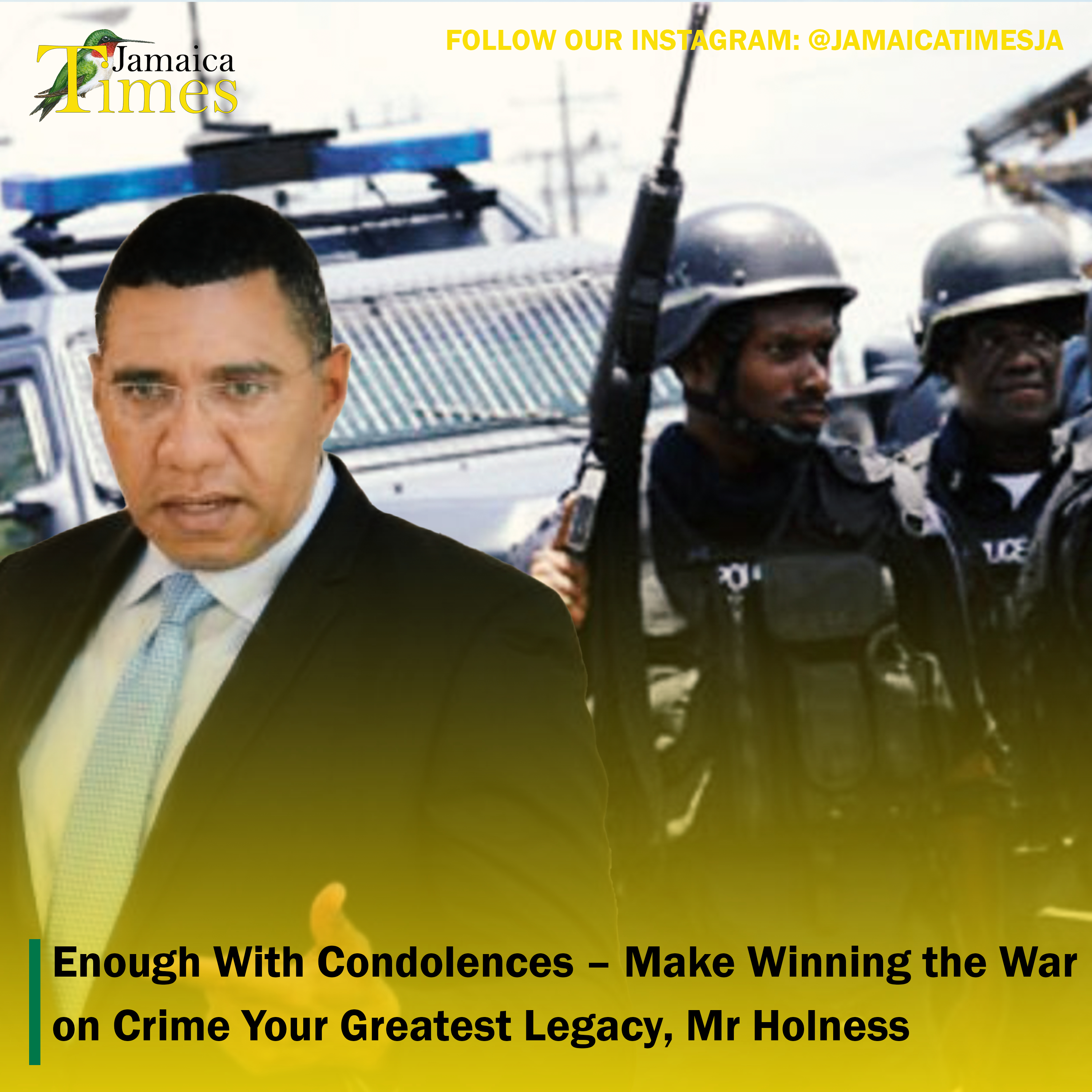By Andrew Clunis
At the rate we are going, Jamaica will run out of condolences pretty soon. It has become one of the most overused words in the country to the point where it now has very little impact.
It is the go-to word for the Prime Minister, the Minister of National Security and the Commissioner of Police when responding to the daily slaughter of Jamaicans at the hands of high-level criminal enterprises and marauding, heartless killers in the country.
At risk of being accused of defeatism, I believe that we can say without contradiction that Jamaica has been losing the war on crime for a long time. The powder keg has exploded and shrapnel is impacting the vast majority of communities across the island.
We know we are in a very dark place when our people have come to accept murder and violence as just a part of life. It seems a wide swathe of the population is suffering from depersonalization disorders.
People’s emotions have been worn thin. We have lost respect for the sanctity of life - and this was inevitable, having been subjected to decades of brutality at the hands of successive administrations, that have failed miserably at the fundamental task of providing a safe space for citizens to exist and thrive.
Was this what our leaders imagined for us when they negotiated the deal for independence over 60 years ago? Did they imagine a society where the citizens live in a constant state of fear and trepidation?
Surely not! They recognized and appreciated the great potential of the country and had lofty dreams of what could be achieved for us to take a coveted place among the global community of nations.
Alas, it took only a decade for us to implode with the dreadful onset of political violence in the 1970s. Jamaica has never recovered and the light that was once at the end of the tunnel has faded to a faint glimmer.
Notwithstanding the fact the nature of the violence we are experiencing today is devoid of political motivations, the actions of the past have created a frightening culture that has been bequeathed through generations. And the government watched from its high tower as the society was being scorched.
Crime control in Jamaica requires modern and innovative approaches. The idea that an outmoded constabulary force and an army that is lacking fixity of purpose can change our fortunes, is just fools’ bacon.
Based on where we are and the trend in numbers, it appears that things are going to get worse before they get better. We now have criminal, violent gangs operating in schools, holding the education process at ransom, with students and teachers operating in an atmosphere of anxiety and despair.
Boots on the ground in Operation Relentless II or any other special squad that is meant to drive fear into criminals have not and will not work. That ship has long sailed.
Crime is not a political crisis in Jamaica. It is reflective of a social catastrophe with infinite tentacles that are strangling the nation. Jamaica needs its brightest minds on deck to exsanguinate this poison. The problem is that the top graduates see no hope at home and are on migration fast track, so they end up contributing to and building other societies.
Government has to develop a programme to identify and retain these individuals. Why do we have a medical doctor and a banker on either side of the political fence trying to fix the crime problem, when it is a criminologist who is perhaps best suited for the job?
Prime Minister Holness has said that he’s no longer looking a political ‘forward’ but is more concerned about his legacy. He said he doesn’t want to leave Jamaica the way he found it. But what will that legacy be? With all the good that he has done in various areas such as infrastructure improvement and the skillful management of the economy, he should be minded that in the long run they might all come to nought because of this insuppressible crime problem. Jamaicans have long and deep memories when it is convenient or politically expedient.
If Mr Holness hopes to have the words “Jamaica’s Greatest Prime Minister” populating his eulogy and epitaph, the war on crime is the single most important fight that he has to win. To achieve that he needs the support of every single Jamaican at home and abroad. So let’s get to work…for the sake of Jamaica land we love!
Share, Like and Follow @jamaicatimesja
Send comments to

